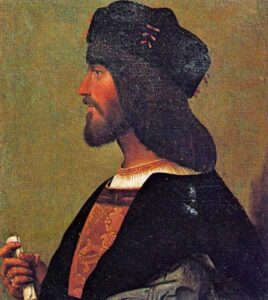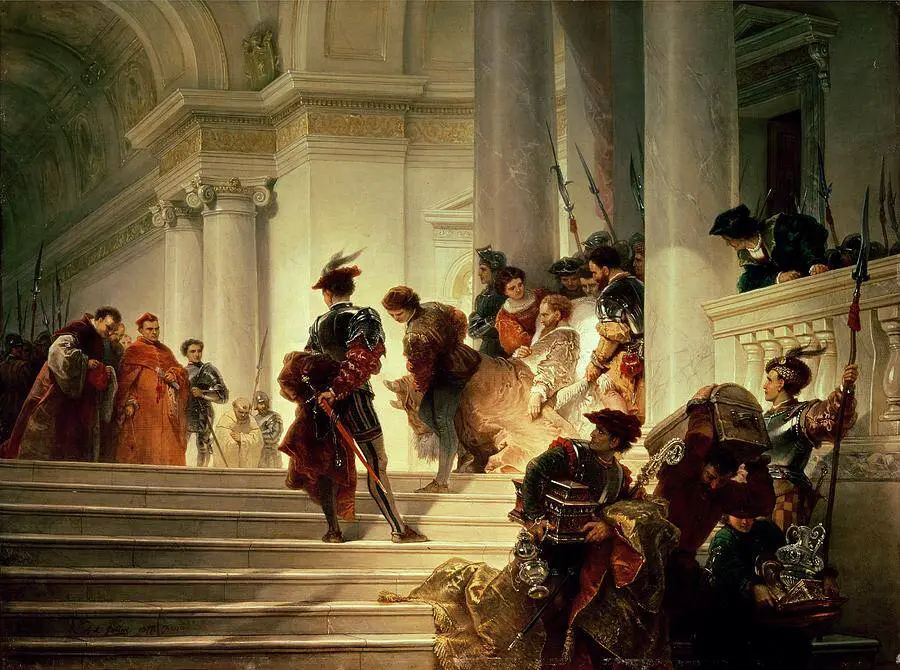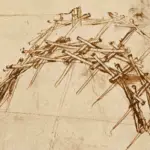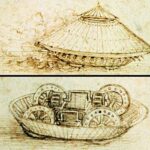
Cesare Borgia
Cesare Borgia was a fascinating figure in Renaissance history. He was known for his ambition and influence on political philosophy.
As the illegitimate son of Pope Alexander VI, Borgia played a crucial role in expanding the political power of the papacy. Borgia was not only a Roman Catholic cardinal but also a military leader who became a central figure in the politics of Italy.
Anyone curious about how historical conflicts shape modern politics will find Borgia’s tale compelling. His endeavors inspired Machiavelli’s famous work, The Prince, offering a model for political strategy.
The intrigue and challenges Borgia faces make his life story dramatic and instructive, helping readers understand the intricate relationships between politics and power.
You will also uncover stories of rivalries and betrayals that marked his quest to establish a principality. Cesare Borgia’s ambition did not just aim for personal gain; it was intertwined with the larger strategic vision of his father’s papacy.
This makes his journey a captivating exploration for anyone interested in the dynamics of Renaissance political ambitions.
Early Life and Family Background
Cesare Borgia was born in Rome between 1474 and 1476. He was the illegitimate son of Cardinal Rodrigo de Lanzol y Borja, later known as Pope Alexander VI and Vannozza de’ Cattanei.
Growing up in a powerful family in Spain, Cesare’s early life was surrounded by political intrigue and ambition.
His father, Rodrigo Borgia, used his influence to secure positions for his children. Cesare initially entered the Church as a cardinal, a role he eventually resigned to pursue a military career. This shift made Cesare a prominent figure during the Renaissance, significantly impacting Italian politics.
The relationship between Lucrezia Borgia and Cesare Borgia was complex. They were siblings and were closely involved in their father’s plans to increase the family’s power. Lucrezia and Cesare Borgia were often at the center of rumors and scandals, reflecting the tumultuous nature of their family’s rise to power.
Cesare Borgia’s life was intertwined with notable figures of the time. He had connections with influential individuals like Leonardo da Vinci, who worked as a military engineer for him.
Cesare’s formidable presence and relentless quest for authority were captured in various portraits, reflecting the dual nature of his charisma and cunning.
As the son of Pope Alexander VI, Cesare’s quest for power was never far from his family’s religious influence. He played a key role in the papacy’s worldly pursuits and attempted to establish his dominion in Italy.
His life, often depicted in media and historical accounts, fascinates those exploring the complexities of Renaissance Italy.
Ascent to Power
His strategic genius and influential connections fueled Cesare Borgia’s rise. His father, Pope Alexander VI, played a significant role in promoting his son’s ambitions across Italy. Known for his military prowess, Cesare’s campaigns reshaped regional power dynamics.
Role in the Papacy of Alexander VI
Cesare Borgia, son of Pope Alexander VI, was crucial in consolidating family power. Appointed as a cardinal at a young age, his influence grew rapidly. However, his true ambitions lay beyond the church, leading him to resign his cardinalship to pursue a military career.
Favored by his father, Cesare was instrumental in expanding Papal territories. He engaged in political alliances and used his familial connections to strengthen his position across Italy.
His actions contributed to the controversial reputation of the Borgia family, with historians noting his role as both visionary and instigator. His father’s favoritism elevated him and marked him as a key figure in the papacy’s pursuit of power.
Military Campaigns and Strategy
Cesare Borgia demonstrated exceptional strategic insight in his military pursuits. As the Captain General of the papal armies, he embarked on campaigns to secure the Romagna region.
His tactics dismantled rival families and expanded the Borgia influence.
Borgia’s alliances with influential figures such as Leonardo da Vinci enhanced his military success. Da Vinci served as his military engineer, designing fortifications and siege weapons.
These campaigns made Cesare a formidable force in Renaissance Italy. Known to inspire Machiavelli’s The Prince, Borgia’s blend of diplomacy and ruthless strategy became legendary.
Within a few years, he carved a legacy synonymous with ambition and political mastery.
Governance and Administration
Cesare Borgia is renowned for his forceful and strategic governance, significantly impacting Renaissance Italy’s political landscape. His methods were marked by both effective internal administration and impressive diplomatic maneuvers.
Internal Policies
Borgia implemented strict control over his territories, using intimidation and incentives to maintain power. As Duke Valentino, he governed the Romagna region, focusing on stabilizing the chaotic political environment.
He appointed capable deputies and ruthlessly dealt with disorder, often employing harsh measures to assert control. His governance style, characterized by fear and loyalty, ultimately enabled him to establish a cohesive administration.
Borgia’s ability to consolidate power exemplified his Machiavellian strategies, demonstrating the pragmatic approach to rule. His policies reflected a sharp understanding of political dynamics and an unwavering commitment to maintaining authority.
Diplomatic Achievements
In addition to his internal strategies, Cesare Borgia excelled in diplomacy by forming key alliances.
Borgia expanded his influence across Italy by leveraging relationships with influential figures like King Louis XII of France.
These alliances provided military support essential for his campaigns. His diplomatic skills were not just limited to military exploits but also strategic marriages and negotiations that strengthened his political position.
Borgia’s interactions with figures such as Leonardo da Vinci, who served as his military engineer, further highlight his ability to engage leading minds to support his endeavors. These achievements made him a notable figure in Machiavellian politics.
Relationship with Renowned Personalities
Cesare Borgia, son of Pope Alexander VI, established notable connections with some of the Renaissance‘s most influential figures. His interactions with Leonardo da Vinci and Niccolò Machiavelli provide a window into his strategic mind and the political dynamics of his era.
Leonardo da Vinci
Leonardo da Vinci collaborated closely with Cesare Borgia. While famed as an artist, Da Vinci also worked as a military engineer for Borgia.
This partnership was practical for both. Leonardo offered his expertise in designing fortifications and war machines, while Borgia provided a platform for da Vinci to apply his skills.
Their relationship extended beyond professional duties. Borgia’s court offered da Vinci the creative freedom he sought, and this alliance is often a testament to Borgia’s influence and vision.
Given da Vinci’s capabilities, Borgia’s choice to employ him speaks volumes of his ambition to consolidate power. Borgia aimed to utilize the best talents of the time to realize his military and dynastic goals.
Niccolò Machiavelli
Niccolò Machiavelli, the renowned political thinker, admired Cesare Borgia’s political acumen. He even traveled to meet Borgia and observed his tactics.
These encounters profoundly influenced Machiavelli’s writings. In his seminal work, The Prince, Machiavelli cites Borgia as an example of effective, albeit ruthless, leadership.
Borgia embodied several principles that Machiavelli advocated. His capacity to navigate political landscapes and orchestrate power plays left a lasting impression.
They both shared an understanding of realpolitik, which is evident in Machiavelli’s writings. By examining Borgia’s actions, Machiavelli developed his ideas about power and statecraft.
This relationship was foundational in shaping Renaissance political thought, solidifying Borgia’s lasting impact on history.
Downfall and Exile

Following the death of Pope Alexander VI, the Borgia family is facing significant challenges (Revoltella Museum)
Cesare Borgia’s loss of support from the papacy marked the beginning of his downfall. His final attempts to maintain power were unsuccessful, leading to his exile.
Loss of Papal Support
Cesare Borgia, the son of Pope Alexander VI, relied heavily on his father’s influence and power to maintain control.
When Alexander died, Cesare’s position weakened significantly. The loss of papal backing left Cesare vulnerable to his enemies, who eagerly seized the opportunity to reclaim their lands and power.
His efforts to manipulate the church leadership were ineffective, as he failed to secure favor with Pius III, Alexander’s successor.
As a result, Cesare had no choice but to leave Rome. The shift in alliances and the papal transition ultimately stripped him of the authority that had enabled his ambitious campaigns.
Cesare’s reliance on familial connections, such as with his sister Lucrezia Borgia, did little to mitigate his declining influence.
Final Military Efforts
Cesare Borgia launched military campaigns despite his diminished resources in a desperate attempt to regain control.
He sought to capitalize on his remaining power by organizing forces across Italy. Nevertheless, his armies struggled, facing significant opposition from rival factions.
These efforts failed to achieve any lasting success and only hastened his downfall.
His capture led to exile, marking the end of his once-prominent political and military career. Even in exile, Cesare Borgia remained an intriguing figure, and his involvement in the politics of Renaissance Italy continues to fascinate people today.
Death and Legacy
During a minor skirmish near Viana, Spain, Cesare Borgia ended on March 12, 1507. The attackers, unaware of his identity, struck him down.
His unexpected death marked the end of an ambitious yet turbulent life that had been deeply intertwined with the politics of Renaissance Italy.
Cesare Borgia was the son of Pope Alexander VI and became known for his ambition and military prowess. His life has intrigued many, including notable figures like Niccolò Machiavelli, who is said to have been inspired by Borgia in his political treatise, “The Prince.”
Despite the turbulent events of his life, Borgia’s legacy extends beyond his lifetime. His tales, full of power struggles, alliances, and betrayals, continue to captivate writers and historians.
His relationship with his sister, Lucrezia Borgia, also adds to the enduring intrigue surrounding the Borgia family.
Visual depictions and stories of Cesare, like the portraits made during his time, contribute to the image of a man who was both feared and respected.
His representation in popular culture, such as in the video game series Assassin’s Creed, highlights his lasting influence on literature and media.
The Borgia name became synonymous with the tumultuous political landscape of the Renaissance, cementing Cesare’s place in history.
His life and deeds continue to be a subject of fascination, representing the mix of ambition and power that characterized his era.
Cultural Depictions
Cesare Borgia has fascinated artists and writers for centuries. His life and actions have been interpreted creatively in literature, film, and television.
Literature
Niccolò Machiavelli drew inspiration from Cesare Borgia’s life to write The Prince. Machiavelli admired Borgia’s political maneuvers and cunning tactics, which he witnessed firsthand while observing him closely. This work has shaped political thought for centuries.
The Borgia family, including Cesare, often appear in semi-historical novels and plays, exploring themes of power and corruption. In addition, the relationship between Lucrezia and Cesare Borgia is explored in various literary contexts, highlighting the complex family dynamics.
Over time, these works have contributed to Cesare Borgia’s lasting image as a feared leader and a master manipulator.
Film and Television
Numerous films and television series have portrayed Cesare Borgia, often emphasizing his notorious reputation and influence. The TV series Borgia dramatizes Borgia’s rise to power and tumultuous family relations.
The video game series Assassin’s Creed, particularly Assassin’s Creed: Brotherhood, features him as a formidable antagonist. The series blends historical elements into its storyline.
These portrayals ooze intrigue and mystery around Cesare Borgia’s death and his life as the son of Pope Alexander VI. They highlight Borgia’s relentless ambition and cement his status as a cultural icon across various media platforms.
Historical Controversies
Cesare Borgia, son of Pope Alexander VI, remains one of Renaissance Italy’s most infamous figures. Known for his political ambitions, he often faced accusations of ruthlessness.
Many believed that he murdered his elder brother Juan out of jealousy, adding to his notorious reputation.
Lucrezia and Cesare Borgia had a complicated relationship that fueled much speculation. Their marriage alliances contributed to family tensions. Some historical accounts suggest political motives behind these family ties, primarily because tensions arose during wartime, leading to murders, such as that of Lucrezia’s husband in 1500.
In popular media, Cesare Borgia was further intrigued by his portrayal in various interpretations, like the game Assassin’s Creed, which portrays him as a cunning and ambitious leader, shaping people’s view of his character today.
In The Prince, Machiavelli reportedly admired Cesare for his daring strategies and viewed him as a model for political leaders.
Questions still surround Cesare Borgia’s death. Different historical sources provide varying accounts of how he died. Some say he met his end in battle, while others recount betrayal as a factor in his demise.
Cesare’s association with Leonardo da Vinci also adds to his legacy. While in Cesare’s court, Leonardo worked as a military architect and engineer, further intertwining Cesare’s story with history’s notable figures.
The Borgia family, marked by scandal, intrigue, and power, remains a fascinating subject. People are interested in their roles and actions during the tumultuous times of Renaissance Italy.
Final Thoughts
Cesare Borgia was a notable Italian Renaissance figure known for his ambition and political acumen. As the son of Pope Alexander VI, he was initially positioned within the Church but later became a renowned military leader and politician.
A mix of strategic brilliance and ruthless decisions marked his life. Cesare’s close association with influential figures like Niccolò Machiavelli, whom he inspired to some extent, demonstrates his impact on political theory and strategy.
Frequently Asked Questions
Cesare Borgia is a notable figure from the Renaissance era, often linked with power and intrigue. His life intersects with other significant figures of his time, highlighting his ambitions and failures.
What was Cesare Borgia known for?
Cesare Borgia, the illegitimate son of Pope Alexander VI, was a powerful and ambitious leader during the Renaissance. He played a significant role in Italian politics and greatly influenced the period’s power dynamics.
Did Cesare Borgia have a relationship with Leonardo da Vinci?
Cesare Borgia did have a connection with Leonardo da Vinci. In 1502, Leonardo worked as a military architect and engineer for Borgia, helping to create Cesare’s map and fortifications.
Why does Machiavelli like Cesare Borgia?
Niccolò Machiavelli admired Cesare Borgia for his political acumen and ruthless efficiency. In “The Prince,” Machiavelli praised Borgia’s ability to acquire and maintain power. He saw Borgia as an example of effective leadership.
Why did Cesare Borgia fail?
Cesare Borgia’s failure can be attributed to several factors, including political missteps and his father’s death, Pope Alexander VI. This loss of papal support significantly weakened his position. Additionally, alliances against him led to his ultimate downfall.
Why did Cesare Borgia wear a mask?
Cesare Borgia reportedly wore a mask due to a disfiguring illness. Accounts are suggesting that he used a mask to cover scars from syphilis. This added to his mysterious reputation.
Was the prince based on Cesare Borgia?
Cesare Borgia partially inspired Machiavelli’s “The Prince.” Machiavelli used Borgia’s political maneuvers as examples of power strategies. While not solely based on him, Borgia’s life provided key insights into Machiavellian principles.
How cruel was Cesare Borgia?
Cesare Borgia was considered ruthless and often associated with cruelty. His actions included notable acts of violence and deception to maintain control. These tactics were typical of the power struggles during his time.
Who is the most famous Borgia?
The most famous Borgia is likely Lucrezia Borgia, Cesare’s sister. She gained notoriety for her marriages and alleged involvement in the family’s political schemes. The Borgia family’s legacy remains a subject of intrigue.
Does the Borgia family still exist?
While the Borgia family is no longer politically influential, it still has descendants. However, they do not hold the same status as in the Renaissance. Their legacy persists more through historical records and cultural depictions.
Was Cesare Borgia handsome?
Historical accounts describe Cesare Borgia as handsome and charismatic. His charm and appearance helped further his political ambitions, complementing his strategic mind and ambitious pursuits.
 I’m Leonardo Bianchi, the mind behind Leonardo da Vinci's Inventions. Thanks for visiting.
I’m Leonardo Bianchi, the mind behind Leonardo da Vinci's Inventions. Thanks for visiting. 


